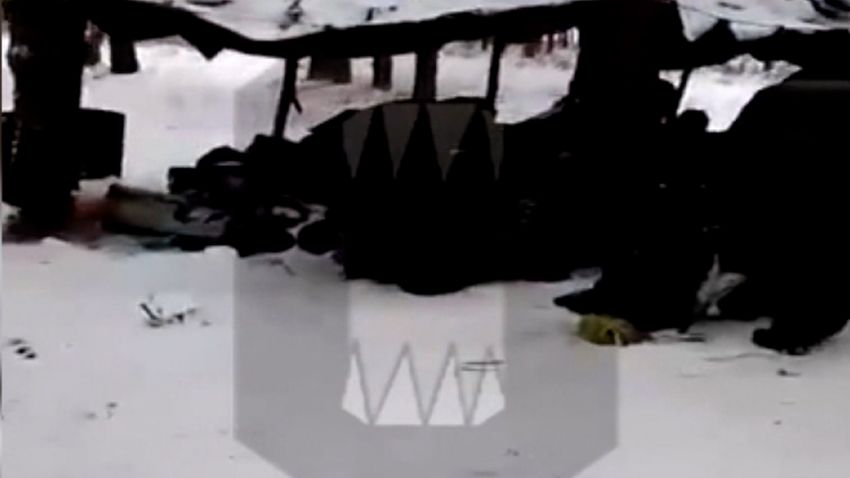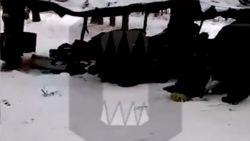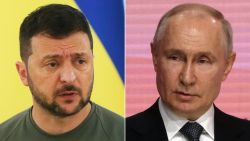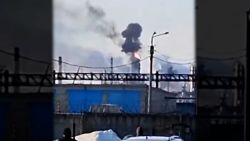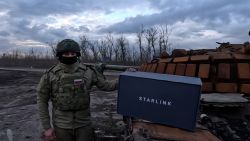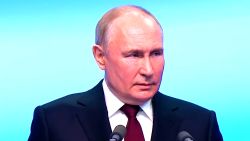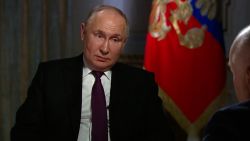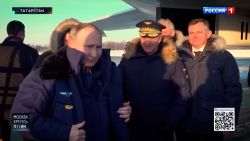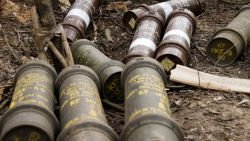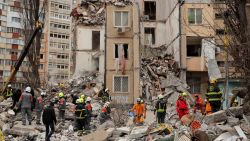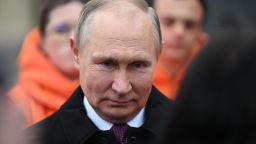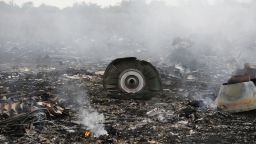Editor’s Note: David A. Andelman, a contributor to CNN, twice winner of the Deadline Club Award, is a chevalier of the French Legion of Honor, author of “A Red Line in the Sand: Diplomacy, Strategy, and the History of Wars That Might Still Happen” and blogs at Andelman Unleashed. He formerly was a correspondent for The New York Times and CBS News in Europe and Asia. The views expressed in this commentary are his own. View more opinion at CNN.
A truce now in the war in Ukraine would essentially spell victory for Russian President Vladimir Putin.

Nine months in, Russian hopes of a swift seizure have been well and truly dashed, its army largely on the defensive across more than 600 miles of battle lines strung along the eastern and southern reaches of Ukraine.
Indeed a truce or negotiations may be the only path to victory possible at this moment for the Russian leader; his manpower exhausted and weapons supplies dwindling.
At the same time, there is a flagging will of the West that could prove equally toxic for Ukraine – and that Putin is almost certainly counting on.
“The only thing a premature truce does is it allows both parties to re-arm,” Michael Kofman, director of Russian studies at the CNA think tank and a leading expert on the Russian military, told me in an interview.
“And because Russia is the most disadvantaged now, it will benefit Russia the most and then renew the war. So all a truce buys you is a continuation of war. It wouldn’t resolve any of the underlying issues of the war,” he added.
Already, Russia is beginning to rearm, experts say. “Ammunition availability” was one of the “most determinative aspects of this war,” said Kofman. “If you burn through 9 million rounds, you cannot make them in a month. So the issue is what is the ammunition production rate and what can be mobilized?” he added.
Kofman cited available information showing that the manufacture of munitions – which have been the staples of the exchanges so far along Ukrainian front lines – has gone from two, and in some factories to three, shifts a day in Russia. This suggests that “they have the component parts or otherwise they wouldn’t be going to double and triple shifts,” he said.
Yet a truce and negotiations are what some senior American and western officials seem eager, or at least prepared, to press at the moment.
“When there’s an opportunity to negotiate, when peace can be achieved, seize it. Seize the moment,” General Mark Milley, chairman of the US Joint Chief of Staff said recently.
But Ukraine’s President Volodymyr Zelensky isn’t buying it. “We will not allow Russia to wait out and build up its forces,” he told the G-20 meeting in Bali earlier this month.
As Ukrainians dig in for a brutal winter of Russian attacks on critical power infrastructure, little wonder they are wary of diplomatic wrangling.
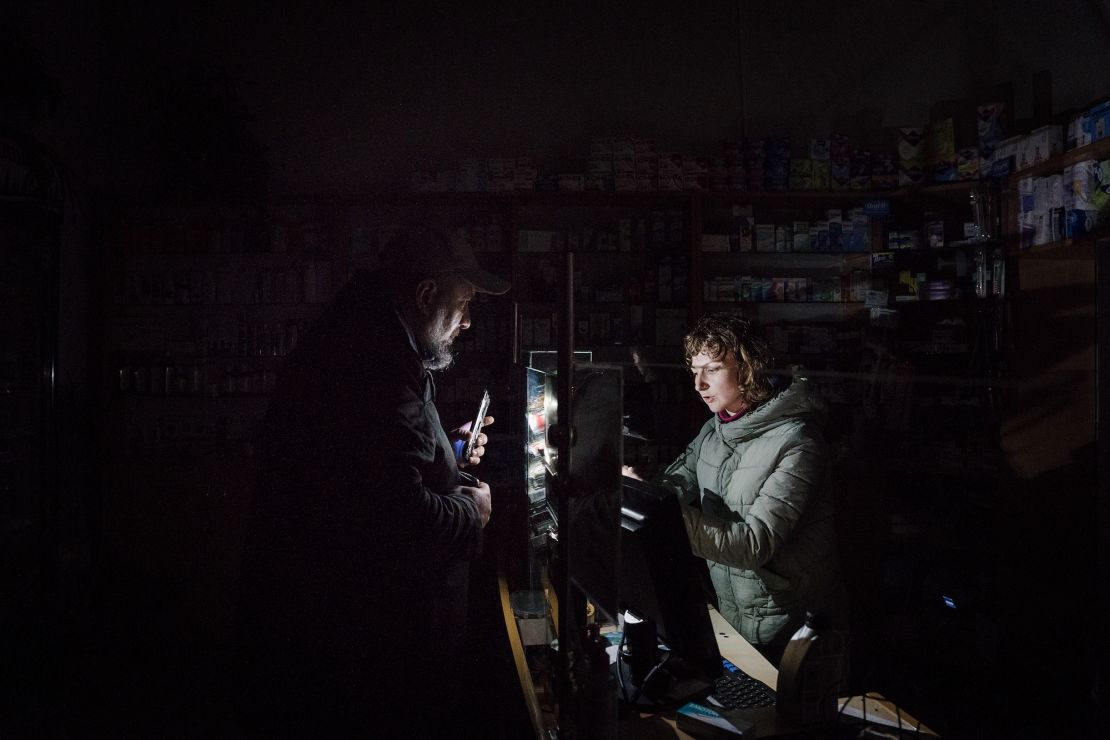
“Please imagine how Ukrainians understand negotiations,” former Ukrainian president Petro Poroshenko told the Council on Foreign Relations on Monday. “You are sitting in your own house, the killer comes to your house and kills your wife, rapes your daughter, takes the second floor, then opens the door to the second floor and says, ‘OK come here. Let’s have a negotiation.’ What would be your reaction?”
The reality is that there is little real value to any truce, whether or not linked to negotiations. A truce gives Russia, its back increasingly to the wall militarily, vitally needed breathing room.
“As well as giving the Russians time to regroup and rearm, importantly it would relieve the pressure on their forces at the moment,” General Mick Ryan, a fellow of the Center for Strategic and International Studies told me in an email exchange. “They have been at it hard for nine months. Their forces are exhausted.”
That sentiment was voiced last month by Jeremy Fleming, head of Britain’s top-secret electronic espionage agency GCHQ. “We know – and Russian commanders on the ground know – that their supplies and munitions are running out,” said Fleming.
Matters for the Russians have not improved since then. On Monday, the British Defense Ministry, which provides some of the most up-to-date and accurate intelligence on the Russian military in Ukraine, reported that, “Both Russian defensive and offensive capability continues to be hampered by severe shortages of munitions and skilled personnel.”
And the French newspaper Le Monde has undertaken a major analysis using on-the-ground video and satellite images showing “Russia’s arms and ammunition stockpiles have been severely dented by Ukrainian targeted attacks.”
The images showed that “in total, at least 52 Russian ammunition depots have been hit by the Ukrainian military since the end of March 2022.” It’s a good chunk of the 100 to 200 Russian depots that analysts believe are on the Ukrainian front, according to the report.
The problem is that the Russians have largely figured this threat out. “The Russians have seemingly adapted to the presence of HIMARs [American-supplied artillery] on the battlefield by pulling their big ammo depots back outside of the range,” Chris Dougherty, a senior fellow for the Defense Program and co-head of the Gaming Lab at the Center for New American Security in Washington, told me in an interview.
That’s “basically any big command post or ammo dump they pulled back beyond the 80-kilometer range,” he explained. And in many cases, just inside Russian territory – which Ukraine has given Washington assurances it would not target with rocket systems supplied by the US.
Dougherty and many other experts, however, believe that truce or no truce, the West needs to up the scale of Ukrainian capabilities.
“Otherwise, Russia will just wait it out,” said Dougherty. Now, after being pushed back in Ukraine’s Fall offensive, “they have a smaller front” to defend.
And, he added, the Russians are “willing to trade mobilized soldiers and artillery shells.” The Russians are expecting that “over time, NATO and the Western allies and Ukrainians won’t be willing to continue to make those trades. And eventually it’ll push them to negotiate. That, I totally believe, is Putin’s bet,” said Dougherty.
That said, history shows any kind of truce with Putin off the back of negotiations would prove meaningless. As Poroshenko observed: “From my personal experience communicating with Putin: Point number one, please don’t trust Putin.” Certainly not to adhere to any agreement if it does not suit his ultimate end of seizing control of Ukraine.
The reality is that the US and the western alliance must be looking as far into the future as Putin and those in the Kremlin who could succeed him. The key question here is: How long will the commitment to the fight persist?
The Russians’ thinking, Dougherty observes, is: “We can stabilize the front and we’ll wait out Ukrainians. We’ll wait out NATO, we’ll wait out the United States.”
Get our free weekly newsletter
But at some point, they’ll also get tired of this war, he added. And the Russian mindset may become “we may not have everything we wanted. But we’ll have a big chunk of the Donbas and will annex that into Russia and we’ll hold onto Crimea. And I think that’s kind of their bet right now.”
At the same time, a truce would also allow the West to rebuild rapidly depleting arsenals that have been drained by materiel sent to Ukraine, even upgrade what’s been supplied.
But were the war to resume months or years from now, there’s a real question as to whether the US and its allies would be prepared to return to a conflict that many are beginning to wish was already over.
